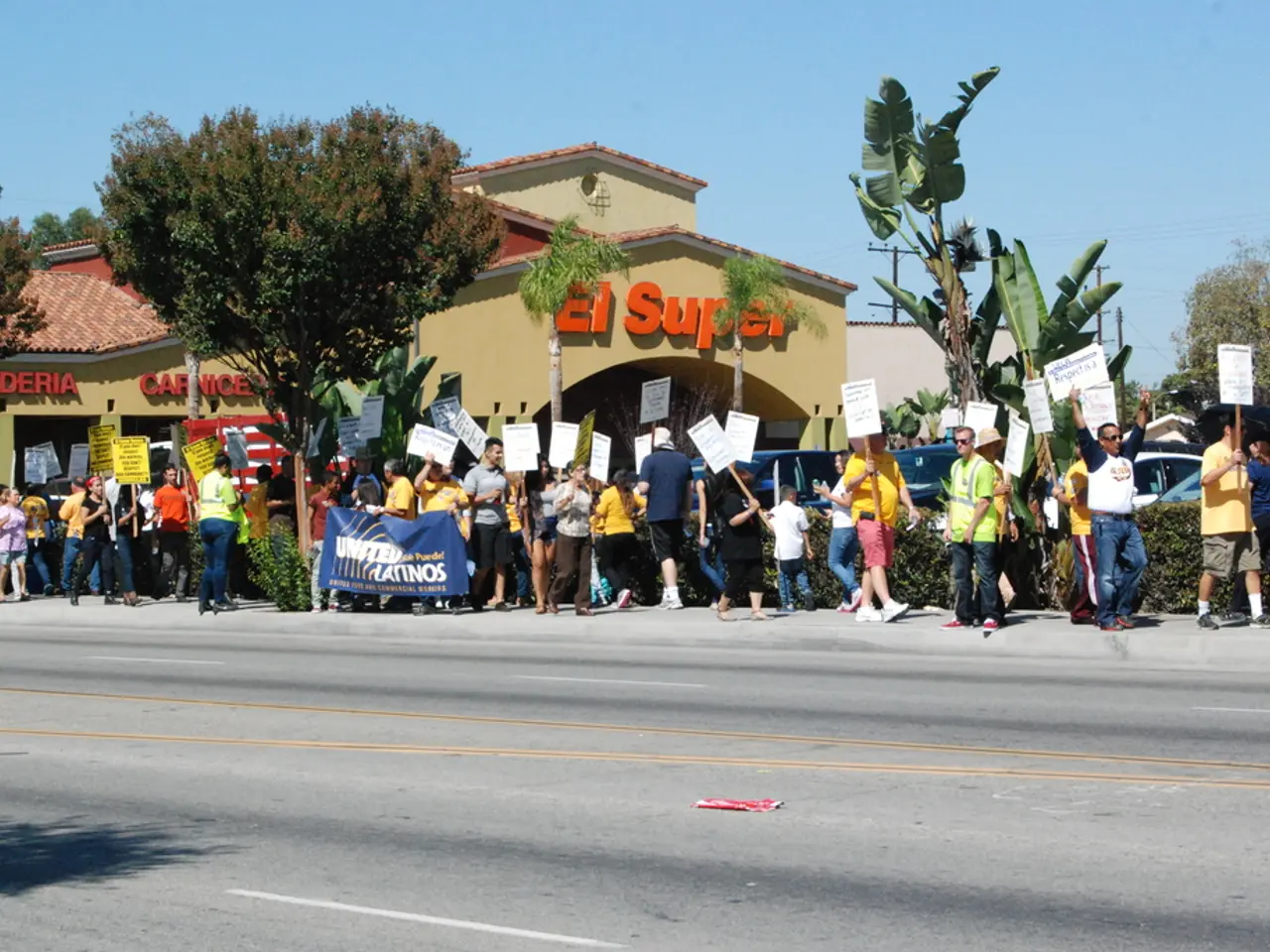Boosting Responses for Political Polls: Strategies for Enhancing Voter Survey Participation
In the realm of political polling, response rates play a crucial role in gathering accurate and reliable data. To optimize response rates for political surveys, a combination of clear design, targeted audience engagement, and effective methods is essential.
Designing Surveys for Success
To respect respondents' time and attention, it's important to keep surveys short and focused. Limit questions to 8-10, and ensure each question is concise, no more than two lines long. Using neutral, unbiased wording is also key to maintain trust and encourage honest answers. The funnel technique, starting with broad, simple questions, moving to complex ones, and finishing again with easier questions, can reduce abandonment.
Choosing the Right Survey Mode
The mode of survey delivery can significantly impact response rates. Telephone surveys can be effective for moderate complexity topics, allowing for clarifications, but they risk refusals due to unknown callers. Paper surveys with face-to-face distribution improve response rates via personal contact. Mail surveys suit longitudinal and political studies but generally suffer from slower response and require good incentives. Online surveys, on the other hand, allow multimedia and quick responses, and can offer password protection for security; they work well for national samples and when question timing is flexible.
Non-response Conversion Strategies
Offering a shortened follow-up survey to initial non-responders may increase participation, though it may yield less complete data and risk measurement error.
Sampling Methods
Random sampling ensures each person has an equal chance of selection, supporting representative results and reliable predictions. Leveraging voter file data for sampling and using stratified sampling can help ensure representative samples of registered voters, improving the quality and legitimacy of survey results.
Increasing Response Rates
Methods to improve voter survey response rates include making surveys short, providing incentives, personalizing outreach, sending reminders, and using multiple channels like phone and email. Reaching out to voters early and often, making it simple for them to respond, and using a mix of methods to reach out can also help increase response rates.
The Importance of Political Surveys
Political surveys are essential tools for measuring public opinion. They can predict election outcomes or determine the level of support for a particular candidate or political party. Tracking survey results trends over time identifies dynamic changes in public sentiment rather than relying on a single poll. Post-election surveys reveal voter motivations, sentiment shifts, and post-election opinion that explain discrepancies between predicted and actual results.
Ethical Considerations
Ethical concerns in political surveys include privacy invasion, biased questions, manipulation, sponsorship transparency, and unintended influence. Campaign teams should avoid push poll pitfalls by ensuring survey aims to collect unbiased data, avoiding manipulative language, clearly communicating purpose, and following ethical standards.
Analysis and Interpretation
Regression analysis helps identify how variables like income or education influence responses to questions, isolating factors that affect opinions. Cross-tabulation examines how different demographic groups responded to questions, revealing subgroup patterns and trends.
Conclusion
A well-run voter survey can provide valuable insights that help shape near-term and long-term decisions. By following best practices in survey design, mode selection, and sampling, political surveys can offer timely insights into voter preferences during campaign seasons, helping campaigns adjust strategy and forecast election outcomes.
- In the field of political surveys and policy-and-legislation, using multiple channels like phone and email to reach out to voters, making it simple for them to respond, and reaching out to voters early and often can help increase the response rates among politicians and the general news.
- Political surveys, being essential tools for measuring public opinion, play a significant role in understanding the general sentiment of the electorate on various policy-and-legislation matters and politicians, contributing to the design and implementation of effective policies and legislation.








